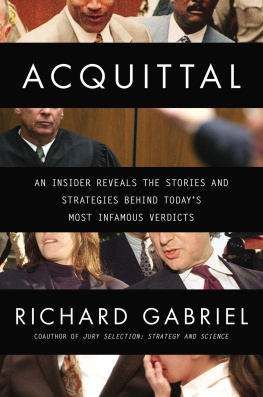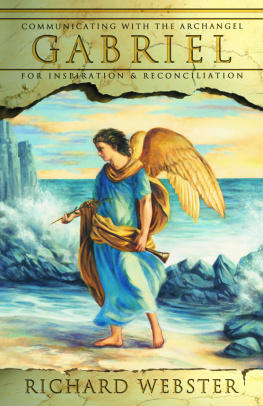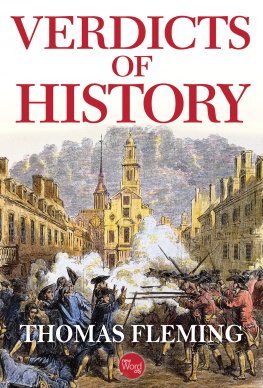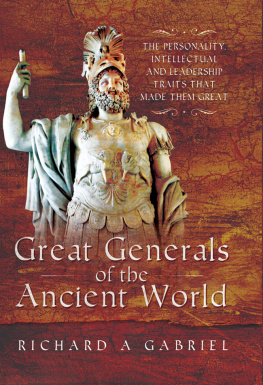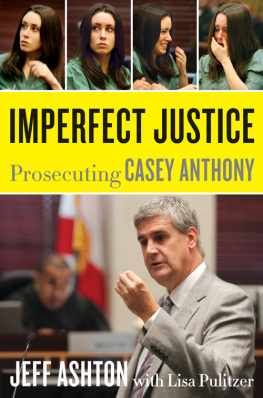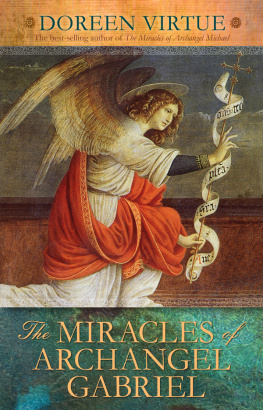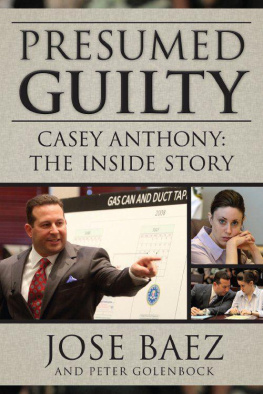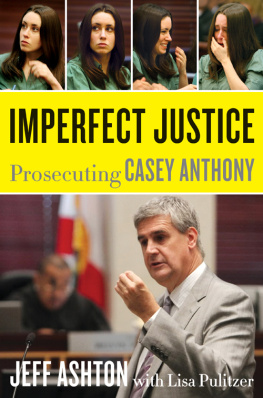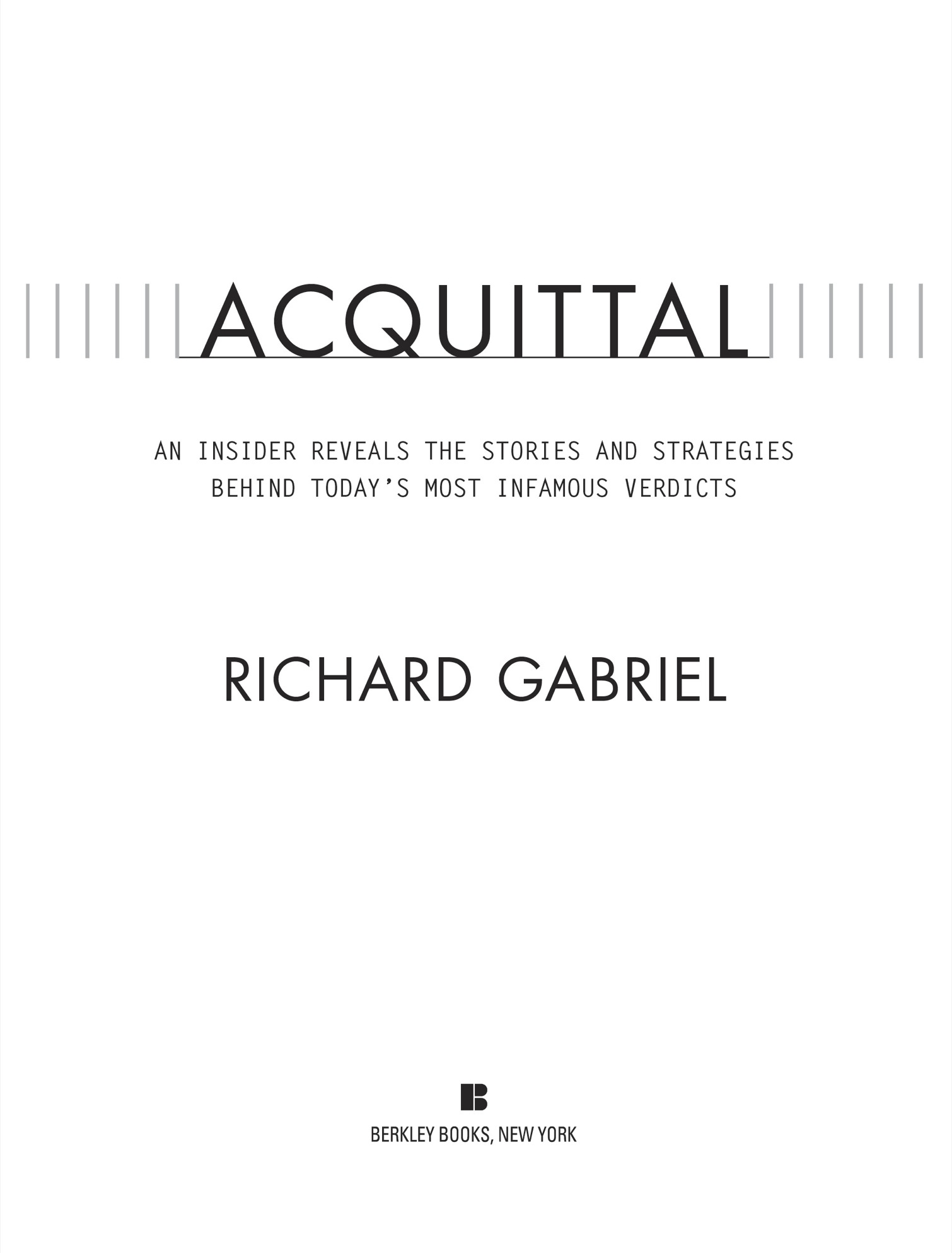THE BERKLEY PUBLISHING GROUP
Published by the Penguin Group
Penguin Group (USA) LLC
375 Hudson Street, New York, New York 10014

USA Canada UK Ireland Australia New Zealand India South Africa China
penguin.com
A Penguin Random House Company
This book is an original publication of The Berkley Publishing Group.
Copyright 2014 by Richard Gabriel.
Penguin supports copyright. Copyright fuels creativity, encourages diverse voices, promotes free speech, and creates a vibrant culture. Thank you for buying an authorized edition of this book and for complying with copyright laws by not reproducing, scanning, or distributing any part of it in any form without permission. You are supporting writers and allowing Penguin to continue to publish books for every reader.
BERKLEY is a registered trademark of Penguin Group (USA) LLC.
The B design is a trademark of Penguin Group (USA) LLC.
eBook ISBN: 978-1-101-63717-3
Library of Congress Cataloging-in-Publication Data
Gabriel, Richard K., author.
Acquittal : an insider reveals the stories and strategies behind todays most infamous verdicts / Richard Gabriel.
pages cm
ISBN 978-0-425-26971-8 (hardback)
1. TrialsUnited States. 2. Defense (Criminal procedure)United StatesCase studies. I. Title.
KF220.G33 2014
345.73'07dc23 2014004157.
FIRST EDITION: June 2014
Jacket photography of O. J. Simpson Getty Images; Heidi Fleiss
Dan Groshong/Getty Images; Phil Spector Retrial
Pool/Getty Images; Casey Anthony Acquitted Pool/Getty Images.
Jacket design by Danielle Abbiate.
The publisher does not have any control over and does not assume any responsibility for author or third-party websites or their content.
Penguin is committed to publishing works of quality and integrity. In that spirit, we are proud to offer this book to our readers; however, the story, the experiences, and the words are the authors alone.
Version_1
Contents
Acknowledgments
To my remarkable wife, Kay, and the three beauties Lily, Imogen, and Emma for their patience, love, support, and taking care of all creatures great and small. To my mother for her inspiration, unending kindness, and noodging. To my father for teaching me how to push, question, and challenge. To my brothers for their calm reassurance. To Sharon Gross, gone too soon, for all of her guidance and insight. To Suzy Hoyt, Michelle Ward, and especially Jonathan Ross for their commitment to excellence, critical eyes, and responding to late-night emails. To Whitney Bowens and Marilyn Orozco for all of their help in research. To Paul Lisnek, Ted Donner, Rich Matthews, and Frank Wolfe for their friendship and brilliance. To Brian Lipson for his perseverance and confidence. To Don Winslow for his encouragement, creativity, and sick humor. To Linda Kenney Baden, Michael Baden, Roger Rosen, Rex Shelby, Ed Tomko, Jason Ross, Shawn Holley, Tony Brooklier, Tom Dawson, Howard Asher, Nancy Haydt, Tom Henze, and Pat McGroder for the work, the stories, and the memories. To Jim Robie, also gone too soon, for his integrity and his laugh. To Larry Scarborough, Steve Lamar, and Isaiah Fields for the war stories and the battle scars. To Rebecca Kourlis, Judy Chirlin, and Barry Scheck for the difference they are making. To Bill Cloke, Peter Sawaya, Pat Cady, Leslie Reidel, Jewel Walker, and Sandy Robbins for teaching me how to learn. To the Detroit Team for making a lasting difference in their city. Finally, to all of the attorneys and judges whom I have worked with over the years for teaching me, encouraging me, challenging me, and demanding more. Your dedication to your clients and the principles of justice are what make the justice system a cornerstone of our democracy.
Introduction
| | | RICHARD GABRIEL | | |
When I was fourteen years old, I remember biking down to a little bungalow in Santa Monica that contained the California Superior courtroom of my mother, the judge. She was conducting a sentencing hearing in which a seventeen-year-old kid had shot and killed a neighbor in his apartment. The kid had claimed self-defense, but the decedent did not have a weapon, and the jury convicted the young man of manslaughter. I watched as my mother carefully questioned the attorneys from the bench, probing their arguments about aggravating and mitigating factors that would determine his sentence.
Later, she brought an armful of accordion and manila file folders home that contained all of the case documents. Poring over them at the breakfast table she talked to my brother and me about the case and her dilemma. Although the evidence and his past record called for a sentence on the upper end of the prescribed term, she thought he was generally a good kid at the wrong place at the wrong time. She didnt want his life to be over by institutionalizing him and possibly creating a career violent offender. She sentenced him to a middle term, but I watched her struggle with the decision, knowing that her sentence would have a very real impact on his life.
That same year, I traveled with my father up to San Francisco to watch him give a paper before the American Psychological Association. He was presenting a new theory of clinical psychotherapy, and I didnt understand a word of it. However, I distinctly remember a host of attendees first questioning him, then standing, then yelling at him about his therapeutic approach. He calmly answered their questions and then questioned them back, challenging them. They grew more furious until the session finally ended.
Later he looked like he could not have been more pleased. This puzzled me. He said that to create change in his clients, he had to interrupt their habituated behavior. This usually makes them angry, but then they could learn. He said that psychologists were no different.
Needless to say, growing up with a mother as a judge and a father as a psychologist, I rarely won an argument or snuck one by my parents. My mothers family escaped the Russian pogroms, and my fathers mother, Grandma Jolie, escaped Hungary before the rise of Hitler, losing most of her family to the Nazis. I was raised in the long shadows of the Holocaust and the civil rights movement. Both of my parents arm-wrestled Joe McCarthy and the House Un-American Activities Committee in the 1950s, the ghosts of Stalin and Hitler pulling at their shoulders. My father, a World War II flight navigator, was blacklisted from working for the Veterans Administration for refusing to sign a loyalty oath. My mother was refused admittance to the California State Bar for reasons of moral turpitudeMcCarthy-speak for people who had certain kinds of friends, attended certain kinds of parties, and subscribed to certain types of publications. But my mother, fresh from law school, hired a lawyer, made an argument to McCarthys committee, and was admitted to the Bar. However, since law firms didnt hire women lawyers at the time, she hung out her own shingle and saw clients at the house so she could take care of my brother and me. I was raised with a healthy skepticism of authority and an appreciation of outcasts and iconoclasts.
I graduated a year early from high school and worked in construction for a year so I could earn enough money to travel in the summer before I went to college. I had planned to go to Europe with a friend of mine from my neighborhood, Brian Dean. He was finishing up high school, and I was helping his family remodel a room in his house, a block away from mine.

